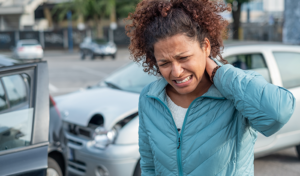
Common Injuries Resulting from a Pile-Up Car Accident
A pile-up car accident, also known as a multiple-vehicle collision, can damage your vehicle and leave you injured and needing medical care. Some injuries are minor and won’t affect you

A pile-up car accident, also known as a multiple-vehicle collision, can damage your vehicle and leave you injured and needing medical care. Some injuries are minor and won’t affect you
UTAH INJURY LAWYERS
Flickinger • Boulton
• Robson • Weeks
PROVO OFFICE
3000 N University Ave
Suite 300
Provo, UT 84604
SOUTH JORDAN OFFICE
10393 S. Temple Dr.
Suite 103
South Jordan, Utah 84095
OFFICE HOURS
Monday- Friday: 8AM-5PM
Saturday-Sunday: Closed
*Disclaimer: the information provided by this website is for informational purposes only and should not be considered legal advice or a substitute for competent legal counsel.
**SMS consent and contact phone numbers will not be shared or sold to third parties or their affiliates for any purpose.
© 2025 All Rights Reserved.